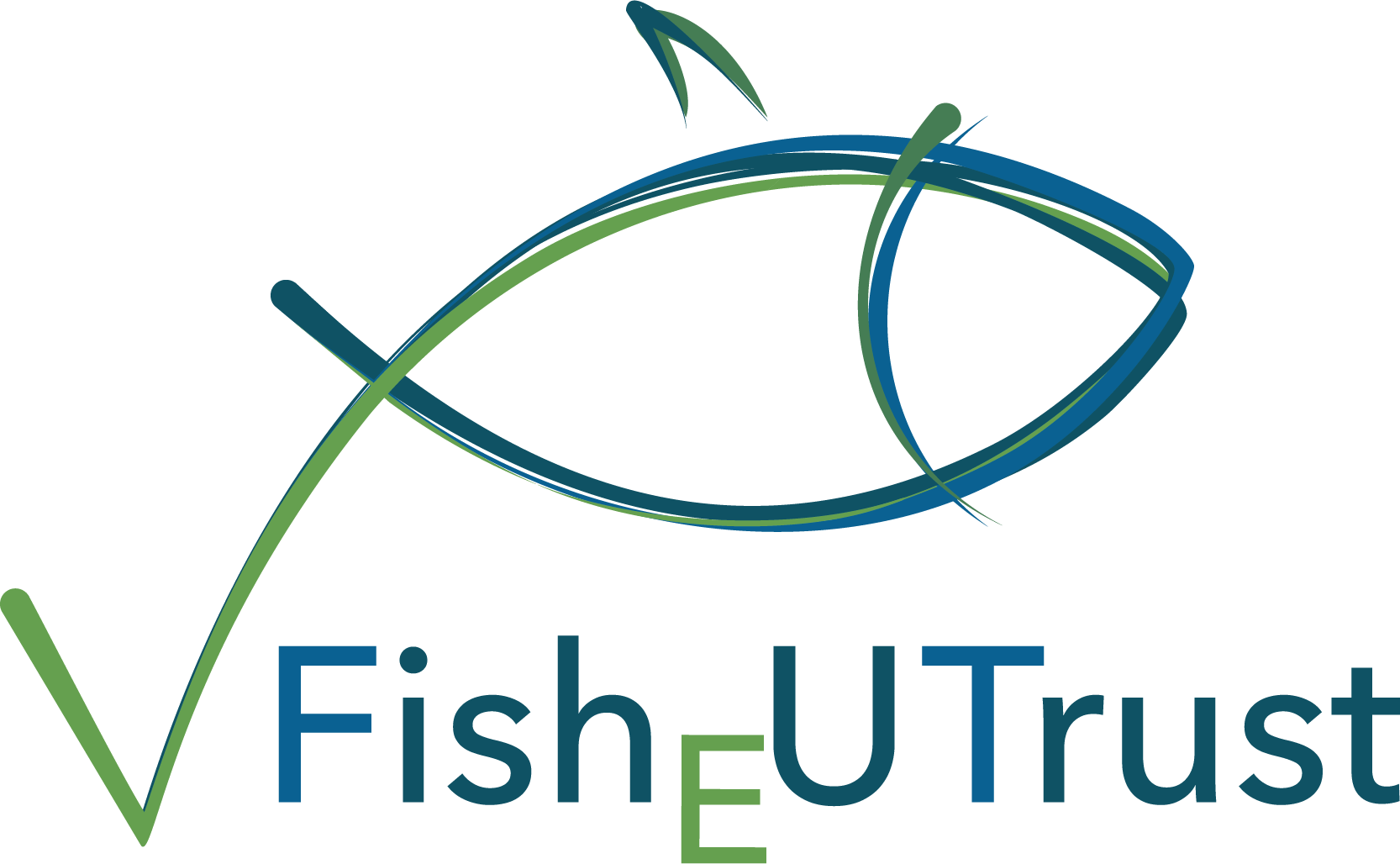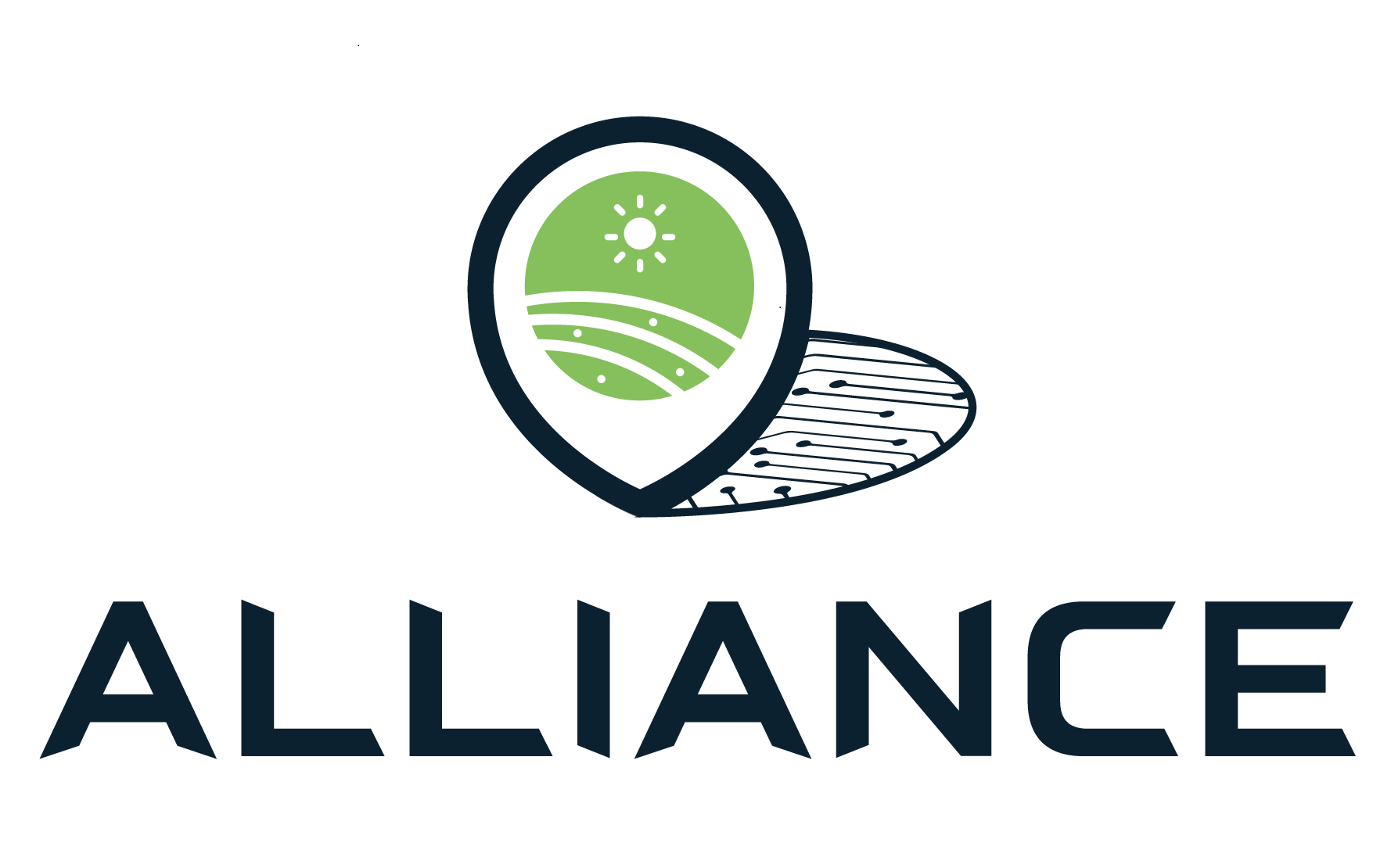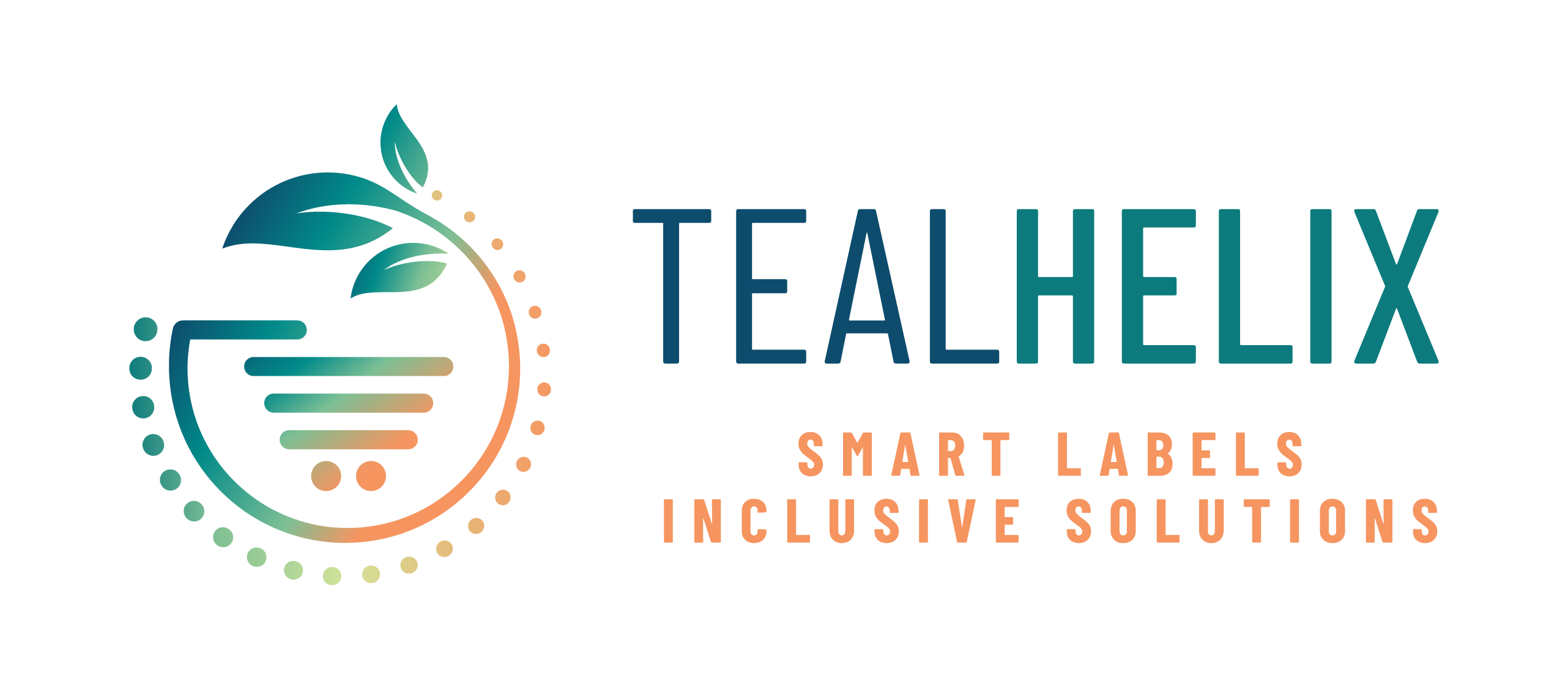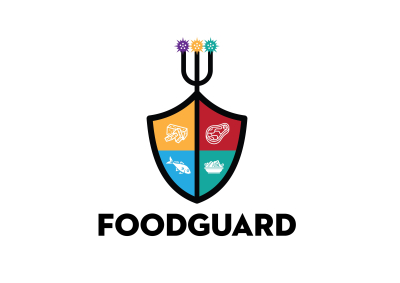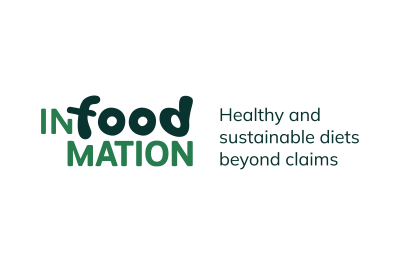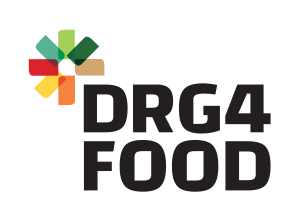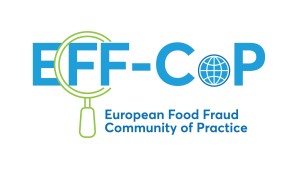EU Cluster for Food Traceability and Trust
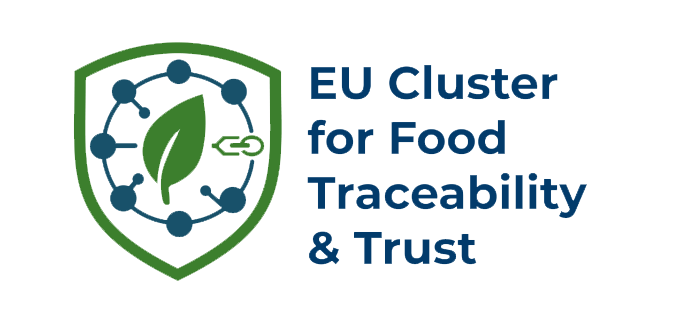
Our transformative journey to filling in existing seafood traceability gaps in the European Seafood sector throughout the value chain had two primary objectives: to significantly increase consumer trust in sustainable seafood, and to foster transparency in the sector by giving actors with sustainable seafood practices a competitive advantage by making them more visible. From the very start of this initiative, we joined forces with FishEUTrust – an innovation project like us, designed to tackle critical challenges in the seafood sector through technological solutions and best practices in EU fish supply channels.
Between May and July 2024, SEA2SEE extended its collaboration network by initiating contact with more cutting-edge EU-funded projects: WATSON, THEROS, ALLIANCE, and CUES. This initiative rapidly gained traction and attracted other projects including TealHelix, TITAN, FOODGUARD, ROSETTA, INFOODMATION, DRG4FOOD, and EFF-CoP.
Together, we founded the EU Cluster for Food Traceability and Trust – a collaborative ecosystem of projects that leverages advanced technology, multidisciplinary expertise, and policy-driven strategies to ensure the EU’s food supply chains are not only secure but also resilient, transparent and sustainable.
Securing food supply chains: EU’s innovative initiatives to combat food fraud, improve food traceability and sustainability, and increase consumers’ trust

On 11 and 13 September 2024, two introductory webinars were organised under the title of “Securing our food supply chains: EU’s innovative initiatives to combat food fraud, improve food traceability and sustainability, and increase consumers’ trust.” Each project presented an overview of its objectives and identified potential areas for future collaboration.
Read more about the two-webinar series in our article Connecting for impact: SEA2SEE forges new synergies for more sustainable seafood value chains.
Traceability and Verification in Food Supply Chains: The Technological Perspective

On 21 February 2025, the cluster organised a second technical webinar titled “Traceability and Verification in Food Supply Chains: The Technological Perspective.” Representatives from 8 EU-funded projects shared the technologies they’re using to enhance the transparency and security of food systems. Projects ALLIANCE, WATSON , FishEUtrust, SEA2SEE ,CUES, TITAN & TEALHELIX, presented their work, followed by a Q&A session where the audience interacted with the speakers and asked their questions. SEA2SEE was represented by partner Tilkal, with Sébastien Gaïde presenting the potential of blockchain solutions for food traceability. This session further reinforced SEA2SEE’s contribution to advancing digital transparency in the seafood sector.
Seafood Traceability: New Legal Framework Webinar
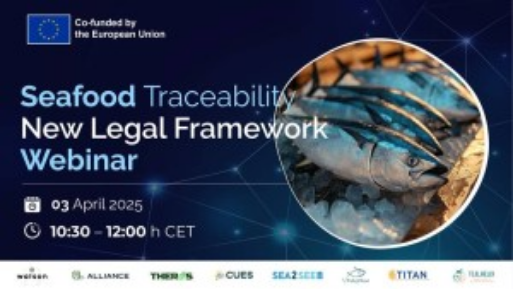
The collaborative webinar “Seafood Traceability: New Legal Framework” was held on 4 April 2025. Organised by SEA2SEE and led by coordinator SmartWater Planet, this event focused on the upcoming changes brought by the Fisheries Control Regulation (EU 2023/2842). Key regulatory updates expected in 2026 and 2029 were discussed, as well as practical implementation insights from industry stakeholders. With over 80 participants, the event was well received.
Read more about the event in the article “Traceability on the tide: EU sets a new course for the future of sustainable seafood.”
Growing a Community
Together, these projects create powerful synergies, contributing to cross-disciplinary collaboration and laying the groundwork for an accelerated uptake of innovative solutions. By tackling the complex challenges of today’s food supply chains, the cluster is looking at a future where safety, sustainability and trust aren’t just words but an inherent part of our daily lives.
Join us on the way, as we continue shaping the resilient food systems of tomorrow. Discover more about each project, their goals and unique contribution to the shared mission of a trusted and transparent food supply for all.
Stay connected!
FishEUTrust aims to defragment the current food system to ensure sustainability and deliver solutions for a transparent and traceable seafood supply chain. The innovation at the heart of FishEUTrust is integrating different actors into a digital platform that links technology providers, supply chain stakeholders, policymakers, and consumers. The project will also develop tools to maximize trust by guaranteeing the quality, safety, and traceability of seafood products, which will be integrated into a single digital FishEUTrust data platform that will use the latest developments in AI, data science, and human-computer interactions.
WATSON is an ambitious Horizon Europe project aiming to develop a methodological framework combined with a set of tools and systems that will detect and prevent food fraud throughout the whole food chain, thus accelerating the deployment of transparency solutions in the EU food systems.
ALLIANCE aims to provide a holistic framework that safeguards data integrity and veracity, enhances traceability and transparency, and reinforces interoperability in the quality-labeled food supply chain through innovative technology solutions and validated approaches that foster evidence-based decision-making.
THEROS is project that aims to implement an integrated toolbox being capable to modernise the process of verifying organic and geographical indications food products and preventing adulterations and non-compliances, through the use of various technological innovations and data sources, while demonstrating enhanced security, transparency and interoperability in the quality labelled food supply chain. THEROS toolbox components will be extensively evaluated in real-life settings through four pilot demonstrations in four different countries while covering diverse requirements, involvement of all relevant actors, and different organic/geographical indication food products and fraud/adulteration cases.
CUES addresses the urgent need for a more sustainable food system that benefits the environment, society, and the economy. The project aims to foster a Triple Change in the food system concerning culture, food value chain, and policy. To this end, CUES will pilot nine food system interventions and policy dialogues, actively involving consumers, food value chain actors, and policymakers. A learning community and toolkits for behavioural change and communication will be developed to motivate 3 million consumers to make sustainable food choices.
TITAN project will provide an extensive platform for the development of innovations that aid transparency and address societal/planetary health, to make the food system fair, healthy, and environmentally friendly, supported by cross-cutting activities dedicated to stakeholder interests, implementation of digital technologies, policy recommendations, business support, management and communication, and dissemination. TITAN will develop innovative solutions, including DNA-based detection methods, Blockchain, AI, and the Internet of Things, to enhance transparency in agri-food businesses, improve food choices by providing more transparent information to the consumer, enhance food safety and authenticity of products, and provide improved information on health and sustainability of food products.
TealHelix aims to promote food sustainability by empowering consumers with tailored and inclusive strategies. By combining motivational matching with personalized interventions, the project seeks to improve decision-making and overcome resistance to sustainable choices. Through life cycle analysis and consumer behavior insights, TealHelix will develop and test innovative labeling strategies and digital solutions across six pilot countries, leveraging expertise in marketing, psychology, data science, and AI-driven innovations to enhance food labeling transparency and impact.
FOODGUARD aims to develop and demonstrate co-created solutions that will support innovations & advances based on microbiome, microbial activities & technology hubs to address food, health, economic and environmental challenges. The envisioned approach consists of a framework of toolsets and methodologies to provide sustainable solutions in food processing, packaging, and across the food value chain to address food shelf-life increase and waste reduction in a holistic manner. FOODGUARD toolbox components will be extensively evaluated in real life settings through four pilot demonstrations in four different countries with the involvement of all relevant actors while covering diverse requirements and different food products.
ROSETTA is committed to exploring the relationship between food waste and marketing standards. The project aims to pioneer sustainable solutions and transform our approach to food resources as we comprehend and quantify the influence of marketing standards on food waste. Our primary objectives include the development of alternative marketing models, a mission we aim to achieve through 5 pilot cases (Ireland, Spain, Poland, Greece and Denmark). By leveraging these real-world scenarios, we aim to provide practical insights that will not only benefit businesses but also form recommendations for policy makers, marketing standards owners and regulators.
INFOODMATION aims to explore how mainstream media, social media, and marketing influence consumers’ food choices.. The project will map communication strategies used by 3 key actors (governments, the private sector, and civil society) and assess their effects on dietary behaviors. This includes which channels, tools, and messages they use. It will also examine the effects of misinformation, the effectiveness of parental control and evaluate existing EU and national policies about food information to consumers. Through this analysis, INFOODMATION will identify best practices, develop responsible business strategies, and provide policy recommendations to foster healthier and more sustainable food choices among consumers. All project outputs, tools, and resources will be made available through the INFOODMATION Knowledge Hub, supporting food system actors in implementing responsible food communication strategies.
DRG4FOOD paves the way for a trusted, data-driven food system that places consumer rights and digital responsibility at its core. Through a combination of pilot projects, open calls, and collaboration with innovators, the project explores how data can be used responsibly in areas like food traceability, targeted nutrition, and consumer empowerment. Building on these real-world experiences, DRG4FOOD is developing a European roadmap and a practical toolbox to guide policymakers, businesses, and civil society in designing food systems that respect privacy, enhance transparency, and empower citizens to make informed choices.
EFF-CoP aim is to revolutionise the combat against food fraud and enhance transparency in food supply chains. How? By establishing and mobilising The European Food Fraud Community of Practice (EFF-CoP), a sustainable Research and Innovation eco-system of food fraud researchers and end-users based on solid sociological principles. EFF-CoP has gathered a diverse group of stakeholders in our consortium and wider community, scientists, regulators, large and small-sized industry, certification scheme owners, the organic sector, fraud film festival organisers, the Food Authenticity Network and the Food Industry Intelligence Network, and many more to lay the groundwork. They are catalysers to start the conversations and reach out rapidly to a large number of prospective EFF-CoP members. They set out to understand the community’s structure to discover the gaps and how they can start new conversations, they then will identify the needs of the various stakeholder groups and they have set up the EFF-Hub as their virtual headquarters

